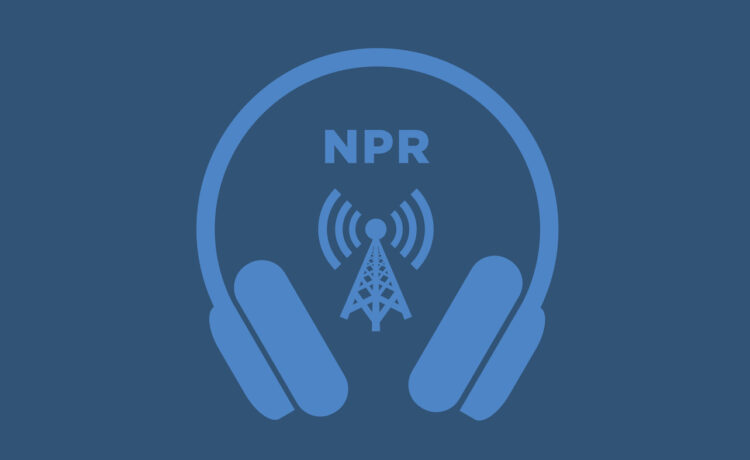In a recent article in Foreign Affairs magazine, economist Benn Steil says most national currencies should be eliminated because they end up being manipulated by politicians, and do more economic harm than good.
JOHN YDSTIE, host:
This is MORNING EDITION from NPR News. I’m John Ydstie.
RENEE MONTAGNE, host:
And I’m Renee Montagne.
Politicians often accuse China of keeping its currency, the yuan, deliberately weak. Sounds like a case for burgernomics. For 20 years, The Economist magazine has published a Big Mac index. Since Big Macs are sold in about 120 countries, the hamburger can be used as a yardstick to compare currency values.
YDSTIE: The undervalued yuan in China means buying a Big Mac there only runs you the equivalent of a $1.45. On the other hand, Norwegians shell out the equivalent of almost seven bucks for the same burger, proving Norway’s currency is overvalued. Still, the index has its limits. Burgers can’t be traded across borders. And McDonalds doesn’t even sell burgers in some countries. So the burger standard may be useful, but beef probably won’t be the next global currency.
MONTAGNE: But how realistic is the idea of a global currency anyway? In a recent article in Foreign Affairs magazine, Benn Steil argues that that’s the direction the world should go. He says most national currencies should be eliminated because they end up being manipulated by politicians and do more economic harm than good.
YDSTIE: Steil is the director of international economics at the Council on Foreign Relations. He joins us on the line from New York City. Welcome.
Mr. BENN STEIL (Council on Foreign Relations): Thanks for having me.
YDSTIE: So you think most countries should drop their national currencies and adopt the dollar, or Euro, or another major regional currency. What’s wrong with national currencies?
Mr. STEIL: Well, I mean the first point to make, John, is that the international monetary system we’re living under right now is historically extremely unusual. Throughout almost all of human history, money has always been gold, or another valuable commodity like silver. And this link only broke down for good around the world in 1971, when President Richard Nixon broke the link between the dollar and gold. And since then, all the national currencies around the world have been tied to nothing of intrinsic value.
And in my view this has led to enormous problems in the international monetary system, and in particular has caused terrible problems for developing countries whose currencies are not wanted by foreigners.
YDSTIE: But let me ask you this. If countries don’t have their own currencies, then they can’t run monetary policy; they can’t prime the pump when their economies fall into recession. Can they?
Mr. STEIL: That’s exactly right. But that sort of pump priming has led to significant economic problems in developing countries. Perhaps the best example in the world of the benefits of eliminating a volatile local currency is, interestingly enough, Ecuador. Ecuador dollarized in the midst of deep political and economic crisis in 2000. Since then, as you know, John, Ecuador has still been in considerable political turmoil, but the economy has done very well.
YDSTIE: Of course another place where countries have chosen to adopt a currency other than the national currency is in Europe with the creation of the Euro.
Mr. STEIL: Well, I used to live in Europe in the 1990s, and there was a saying in Europe that in order to be a country, you needed to have an airline, a stock exchange and a currency. These days, many European countries have none of these things. Airlines have merged across borders. Stock exchanges have merged across border. And of course now we have the multinational currency the Euro. And it’s a great success. Interest rates have come down very dramatically in countries like Italy. And this supports capital development. It supports investment. And it makes it much cheaper for governments to finance their debt.
YDSTIE: What happens, though, if those who control the large currencies, like the dollar, follow bad economic policies? Doesn’t everyone suffer?
Mr. STEIL: Absolutely yes. For all intents and purposes, the global capital market is denominated in U.S. dollars. Interest rates globally are established here in the United States. And this puts an enormous burden on our political institutions to be responsible.
What I suggested in my Foreign Affairs piece, we may wind up at some point going back to gold. Given modern computer technology, we could actually have an international monetary system that was privately organized – gold banks in which we all essentially had smart cards. And we could buy our cappuccinos with a gram of gold or so rather than using a national currency. This is not science fiction anymore.
YDSTIE: Benn Steil is the director of international economics at the Council on Foreign Relations. He joined us from New York. Thanks very much.
Mr. STEIL: Thank you, John.
Copyright © 2007 NPR. All rights reserved. Visit our website terms of use and permissions pages at www.npr.org for further information.
Accuracy and availability of NPR transcripts may vary. Transcript text may be revised to correct errors or match updates to audio. Audio on npr.org may be edited after its original broadcast or publication. The authoritative record of NPR’s programming is the audio record.





